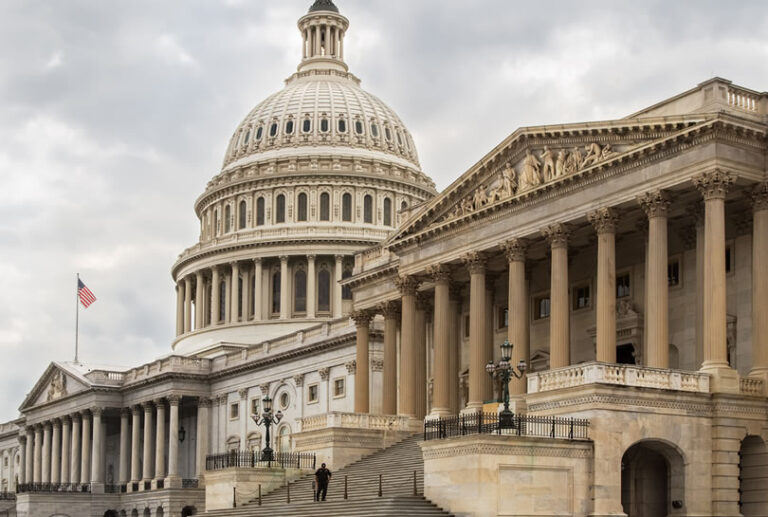Jan. 25, 2021 – As of Jan. 25, and five days after the inauguration of President Joe Biden, the Senate has not yet scheduled confirmation hearings for Xavier Becerra, Biden’s nominee for Secretary of the Department of Health and Human Services (HHS). Any delay in his confirmation will cause a leadership gap at a critical time in the COVID-19 pandemic, but given the Senate’s current haggling over procedures under a 50-50 party split and the impending impeachment trial of President Donald Trump, confirmation hearings in the Senate Health, Education, Labor and Pensions Committee and the Senate Committee on Finance could be pushed well into February.
Donna Shalala and Kathleen Sebelius, who served as HHS Secretary under President Bill Clinton and President Barack Obama, respectively, said in a Dec. 18, 2020, article in Salon that confirming the HHS Secretary should be of utmost importance.
“Any delay [in confirmation] delays COVID, despite a strong White House coordination,” Shalala told Salon, “because you’ve got to get the agencies in sync and you can’t do that from the White House.” Sebelius explained in the article that it would be hard to mount a pandemic response without an HHS Secretary. “That pressure falls on Congress,” Sebelius said. “There’s just a sense we can’t screw around with this.”
Becerra served for 12 terms in the U.S. House of Representatives before becoming California attorney general, so he is no stranger to Washington politics. Although his background is not in public health and he does not have experience managing an organization as complex as HHS (with over 80,000 employees), he does have other interesting credentials, especially when a top administration goal is to strengthen the Affordable Care Act (ACA)
Since becoming California’s attorney general four years ago, Becerra has looked for ways to expand health coverage. Most notably, in the Texas v. California case concerning the constitutionality of the ACA that is now before the U.S. Supreme Court, Becerra is the lead state attorney general on the pro-ACA side.
“With only narrow Democratic control of the Senate, legislation to add a public option or extend Medicare to those ages 60-64, as candidate Biden advocated, may not be viable,” said Coalition for Healthcare Communication Executive Director Jon Bigelow, in a memo to industry leaders. “Yet Becerra will be in position to significantly expand ACA coverage through administrative measures. To begin, he can undo Trump administration actions that narrowed the open enrollment period, sharply reduced the marketing budget, removed ‘navigators’ to help individuals find a suitable plan, and created ‘skinny’ plans that provided minimal coverage,” Bigelow said.
Bigelow noted that expansion of the population covered by the ACA would benefit the pharma and hospital industries, but they may be more wary of Becerra’s history on other issues, such as backing California’s ban on “pay-for-delay” deals between branded and generic drug manufacturers and winning a landmark, $575 million settlement in an antitrust case against Sutter Health, a major hospital and physician network, which claimed its anti-competitive behavior drove up costs. Further, he filed a brief in a suit to give states more authority to regulate pharmacy benefit managers. Additionally, Becerra has advocated that the federal government use so-called “march-in rights” to override patents on drugs like remdesivir needed to treat COVID-19 patients. Another priority for Becerra will be to find ways to limit rising drug prices and hospital costs.
The odds that Becerra will be confirmed increased greatly when Democrats gained Georgia’s two Senate seats according to Bigelow. Deputy Assistant Secretary of Budget Norris Cochran will serve as Acting Secretary until Becerra is confirmed. Two other persons nominated for key roles, Andrea Palm as Deputy Secretary of HHS and Rachel Levine as Assistant Secretary for Health, will also require Senate confirmation.
The Biden administration has not yet nominated two agency heads who report into HHS and will require confirmation – the administrator for the Centers for Medicare and Medicaid Services (CMS) and the commissioner of the Food and Drug Administration (FDA) – reportedly because Becerra wants a voice in these critical choices. “Having Dr. Janet Woodcock as acting FDA commissioner reduces pressure for a quick decision there,” he said. The acting CMS administrator is Liz Richter, the deputy director of the Center for Medicare within CMS. Because Dr. Rochelle Walensky’s role does not require Senate confirmation, she has already taken office as director of the Centers for Disease Control and Prevention, another key health agency reporting into HHS.
At a time when the public’s health is at risk and the safety and availability of new vaccines and treatments to combat COVID-19 are paramount, vacancies in these key positions are less than ideal. “If vacancies at the highest levels of HHS persist,” Bigelow said, “the administration has a tougher road ahead.”




